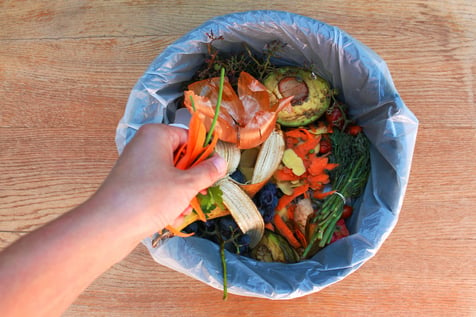
Food waste is still a burning issue worldwide. We continue to throw out tons upon tons of food day after day while famine thrives. Therefore, many startups are pivoting to tackle the food waste challenge. Here are just a few big players in the niche.
Shelf Engine
Food waste doesn’t just reside with the consumer or the household. In many cases, supermarkets and stores don’t know how much is ‘enough’. This can lead to mass spoilage of unsold food and comestibles.
Shelf Engine, based in Seattle, serves as a prediction algorithm to help stores calculate their optimum inventories. Driven by POS data, the company is already helping big brands such as Target cut back on heavy wastage.
FoodMaven
FoodMaven, meanwhile, works at the other end of the chain. They aim to help find new ways to process food that would otherwise head to the landfill. The CEO, Ben Deda, actually confirms that around 40% of all food bought or left unsold in the US gets wasted.
The company completed a barnstorming funding round worth $15.3 million in 2019. Deda’s team is focusing on finding sustainable ways to make wasted food travel further, wherever possible.
Phood
Phood is developing an artificial intelligence-driven analysis service to help providers cut food wastage. Their disposal and tracking services, pivoted towards food business, help users analyze where they may be wasting too much.
This is a key factor for restaurants and food delivery companies who don’t know how much food day after day they throw away. Startups like Phood crunch the numbers to ensure companies know exactly where waste is coming from. When you have the data clear and present to see, it is easier to make plans to cut down.
Copia
Copia is a firm that blends the core concepts of both Phood and FoodMaven. Their analysis service shows users where they are most wasteful. However, they also supply direct channels and opportunities to redirect wasted food elsewhere.
Part of the problem with wasted food is that much of it may still be safe to eat. Copia’s model shows that it is important to understand how much food you need - and what to do with the surplus.
Flashfood
Flashfood is a US-based app service that directly appeals to those in need of food. As mentioned, some food and drink are thrown away even though they are safe to ingest. Flashfood’s app, therefore, provides users with information on stores that have waste items available at short notice.
Stores can better manage their potential wastage, and those in need can find sustenance that would otherwise be disposed of. It’s a model that has mutual benefits on either end of the chain.
Startups Are Working Hard to Limit Landfill

We really only have so much space left in our landfill sites. With hunger still being a prevalent problem, we must make the most of our food.
Fundz provides real-time data on waste-cutting enterprises and food startups across the US. The future lies in not just recycling but using as much as we possibly can.